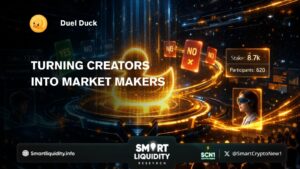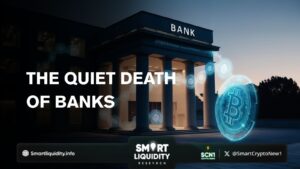The Role of DAOs on Ethereum


The Role of DAOs on Ethereum! Decentralized Autonomous Organizations (DAOs) have become a defining feature of the Ethereum ecosystem, transforming the way governance and decision-making are conducted in the blockchain space.
The rise of DAOs signifies a shift from traditional centralized structures to more decentralized, community-driven initiatives. In this article, we explore the critical role that DAOs play on Ethereum, the benefits they bring, and the challenges they face.
What is a DAO?
A DAO is an organization represented by rules encoded as a computer program that is transparent, controlled by organization members, and not influenced by a central authority. On Ethereum, DAOs utilize smart contracts to automate processes such as voting, funding allocation, and governance decisions. The key characteristic of DAOs is their decentralization—decisions are made by the community, not a central leader or board of directors.
How DAOs Work on Ethereum
Ethereum’s smart contract functionality enables the creation of autonomous DAOs that follow predefined rules. These smart contracts ensure that the organization’s rules are enforced without human intervention, allowing for trustless decision-making. Members of the DAO typically hold governance tokens, which allow them to vote on proposals, from financial decisions to strategic direction.
One of the key advantages of DAOs on Ethereum is the transparency they provide. All decisions and votes are recorded on the blockchain, making it easy for members and the public to verify that the DAO is acting by its stated rules.
Key Roles of DAOs on Ethereum
1. Decentralized Governance
DAOs are revolutionizing governance models by distributing decision-making power to a broad set of stakeholders. Traditional corporations rely on centralized management, but DAOs enable participants to have a direct say in key decisions. This fosters a more democratic and inclusive environment for contributors, allowing Ethereum-based projects to be managed in a way that reflects the will of the broader community.
2. Fundraising and Resource Allocation
Ethereum DAOs often function as decentralized venture capital or grant-giving entities. They enable transparent crowdfunding, where backers can have a say in how the funds are used. For example, DAOs like Moloch DAO have been pivotal in funding public goods development on Ethereum, contributing to advancements in scalability, privacy, and other ecosystem improvements.
3. Community-Driven Innovation
DAOs help foster innovation by allowing communities to propose, vote on, and implement new ideas. Many Ethereum-based projects, including DeFi protocols and NFT platforms, rely on DAOs to guide development priorities and feature sets. This decentralized model ensures that the evolution of projects aligns with the interests of their users.
Benefits of DAOs on Ethereum
DAOs bring several key benefits to the Ethereum ecosystem:
- Efficiency
Smart contracts automate much of the operational work, reducing the need for human oversight and cutting down administrative costs. - Inclusion
DAOs are accessible to anyone with an internet connection and governance tokens, allowing for a global, diverse group of participants. - Transparency
With all decisions and transactions recorded on-chain, DAOs are highly transparent, which helps to build trust among members.
Challenges Facing DAOs
Despite their potential, DAOs are still a relatively new concept and face several challenges:
- Legal Uncertainty
The legal status of DAOs is often unclear, particularly in terms of liability and tax obligations. Different jurisdictions have different rules, and there is no global consensus on how DAOs should be treated. - Security Risks
While Ethereum’s blockchain is highly secure, smart contracts are vulnerable to bugs and exploits. The infamous DAO hack in 2016, where millions of dollars were stolen due to a vulnerability, is a reminder of the risks involved. - Coordination Challenges
Achieving consensus in a DAO with a large, diverse group of participants can be difficult, and sometimes leads to governance gridlock or voter apathy.
Synopsis
DAOs represent a fundamental shift in how organizations can be structured and governed. Ethereum has already proven to be a valuable tool for decentralization, innovation, and community-driven projects. While there are still hurdles to overcome, the potential for DAOs to redefine governance and collaboration in the blockchain space is immense. As Ethereum continues to grow, so too will the role of DAOs in shaping the future of decentralized ecosystems.




